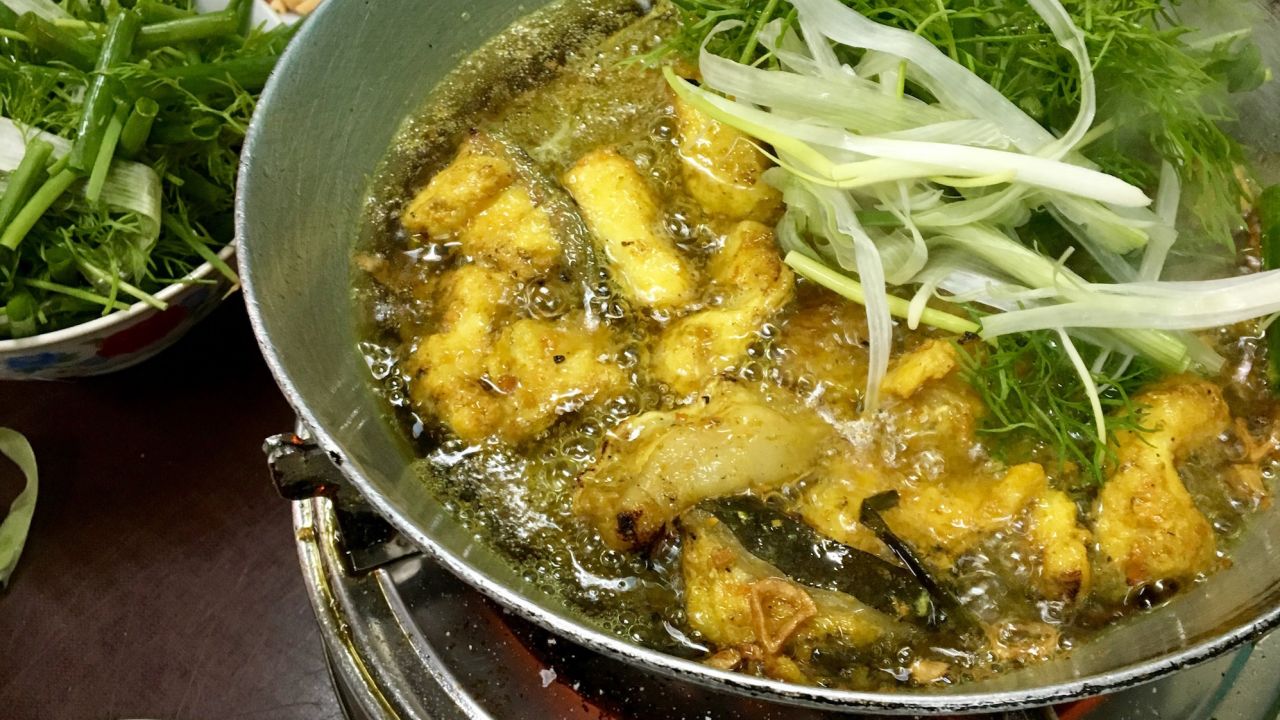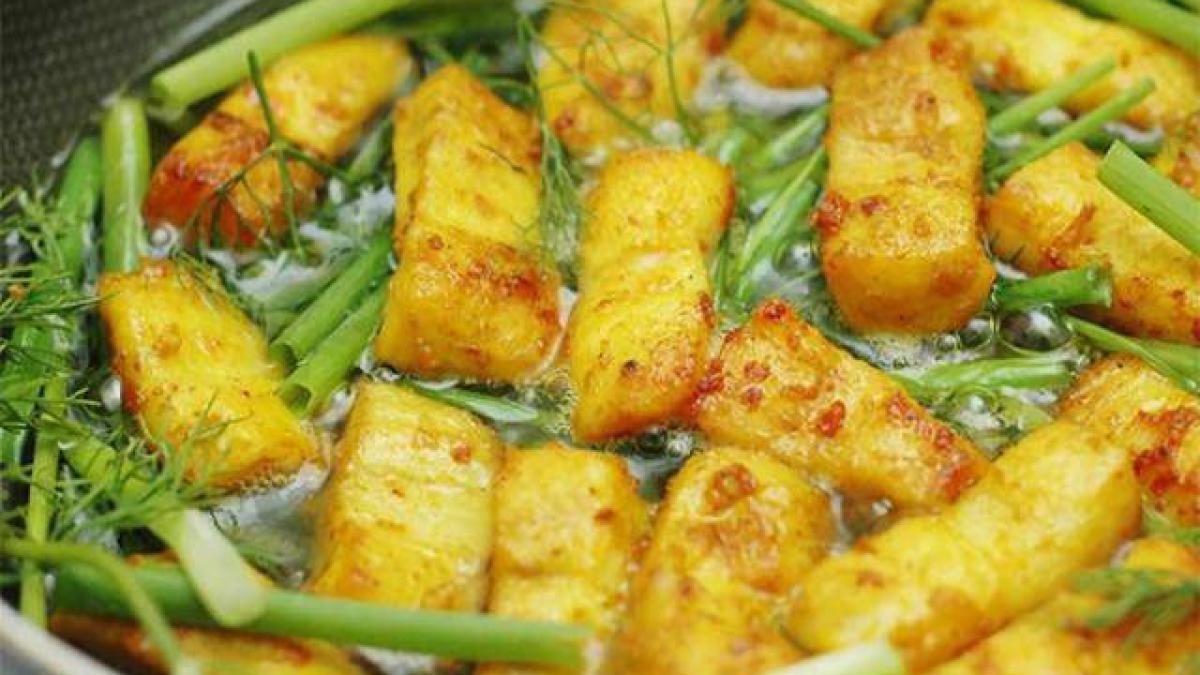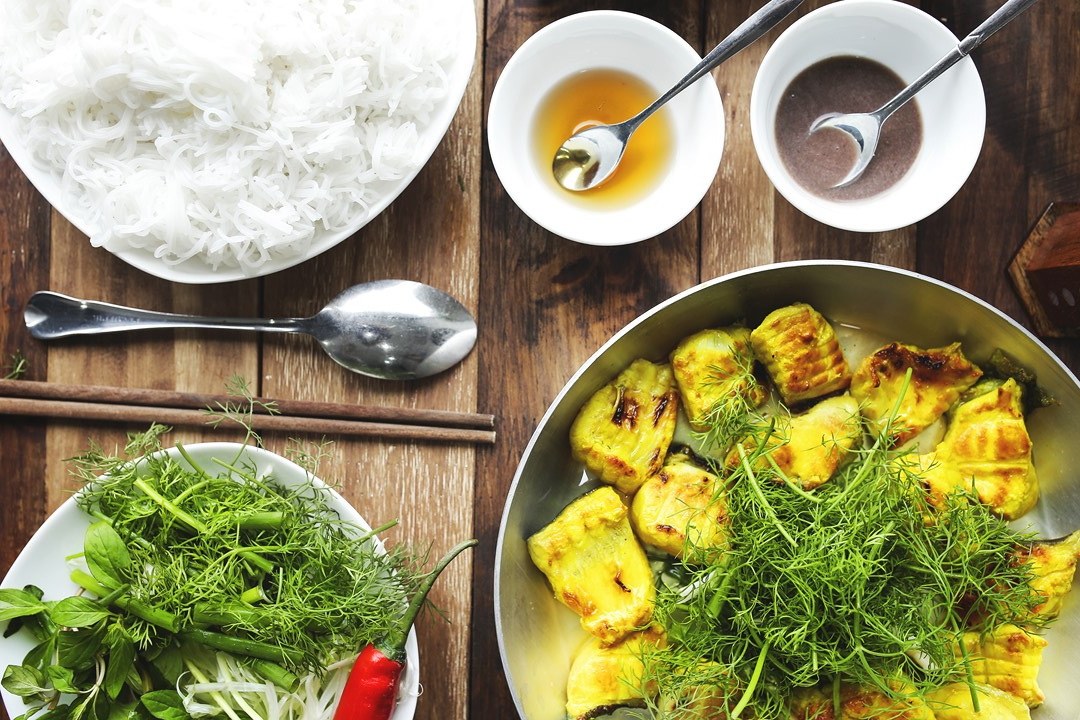
A vermicelli noodle dish with turmeric-spiced catfish that diners grill themselves.
This is Cha Ca La Vong – one of the oldest eateries in Hanoi, Vietnam, and the first to set up shop on Cha Ca Street, over a century ago.
Along the busy road, where spiderwebs of exposed electric wires hang overhead, dozens of specialists compete to sell the best cha ca – crispy turmeric-marinated fish that’s fried tableside in a pan with herbs.
The dish’s universal appeal has made the namesake street in the Old Quarter a popular stop among travelers and residents alike.
“When I walk down Cha Ca Street, it brings me back to my childhood,” Nguyen My Giang Huong (a.k.a Tin), chef-owner of Green Tangerine restaurant in Hanoi, tells CNN Travel.
“People in Hanoi take food very seriously – whatever is on the table it is important. (Enjoying cha ca) is a great moment that brings the family together.”
Hanoi’s most famous dish
Cha ca dates back more than 130 years. It was first invented by the local Doan family, who served the special dish to troops during French colonial rule.
“When troops came to Hanoi, the family used to make them this one dish,” says Tin. “Since they made it so well, everyone encouraged them to open a restaurant.”

And that restaurant was Cha Ca La Vong.
Following the restaurant’s wild success, dozens of cha ca specialists emerged along the same road – some even mimic the name – like Cha Ca La Song – in hopes of baiting travelers.
Eventually, Hang Son (Paint Street) was officially renamed Cha Ca Street in honor of the world-famous dish.
Usually made with snakehead, a freshwater fish found across Vietnam, cha ca is considered one of Hanoi’s signature dishes.
The marinade – a mix of turmeric, garlic, shallots, galangal (similar to ginger root), salt, sugar and fish sauce – is the most important step.

After marinating the fish for at least an hour, it’s usually grilled in advance, then fried in oil when it’s ready to consume.
In a traditional cha ca restaurant, it’s a DIY experience.
“You come in, sit down, give your order – just choose one portion or two,” says Tin.
A searing hot pan with marinated fish will arrive at the table, alongside a basket of accoutrements – think vermicelli, fresh herbs (like dill, basil and spring onion), roasted peanuts, chili, and mam nem (a fermented shrimp paste) with a distinct musky aroma.
As the fish and herbs grill in front of your eyes. The turmeric marinade turns the fillet a glorious golden shade while a grassy aroma of dill fills the air.
Once it’s sizzling, enjoy bite-sized slices of fish with some salty peanuts, herbs and vermicelli.
New interpretations
As Hanoi’s restaurant scene continues to evolve, cha ca is no longer contained to its namesake street.
Modern interpretations of the beloved fish dish can be found at contemporary restaurants around Hanoi. Including cha ca-style tacos at MAD Society, a refined iteration at T-Art and wine pairing suggestions at Sofitel Legend Metropole Hanoi’s Spices Garden restaurant.













